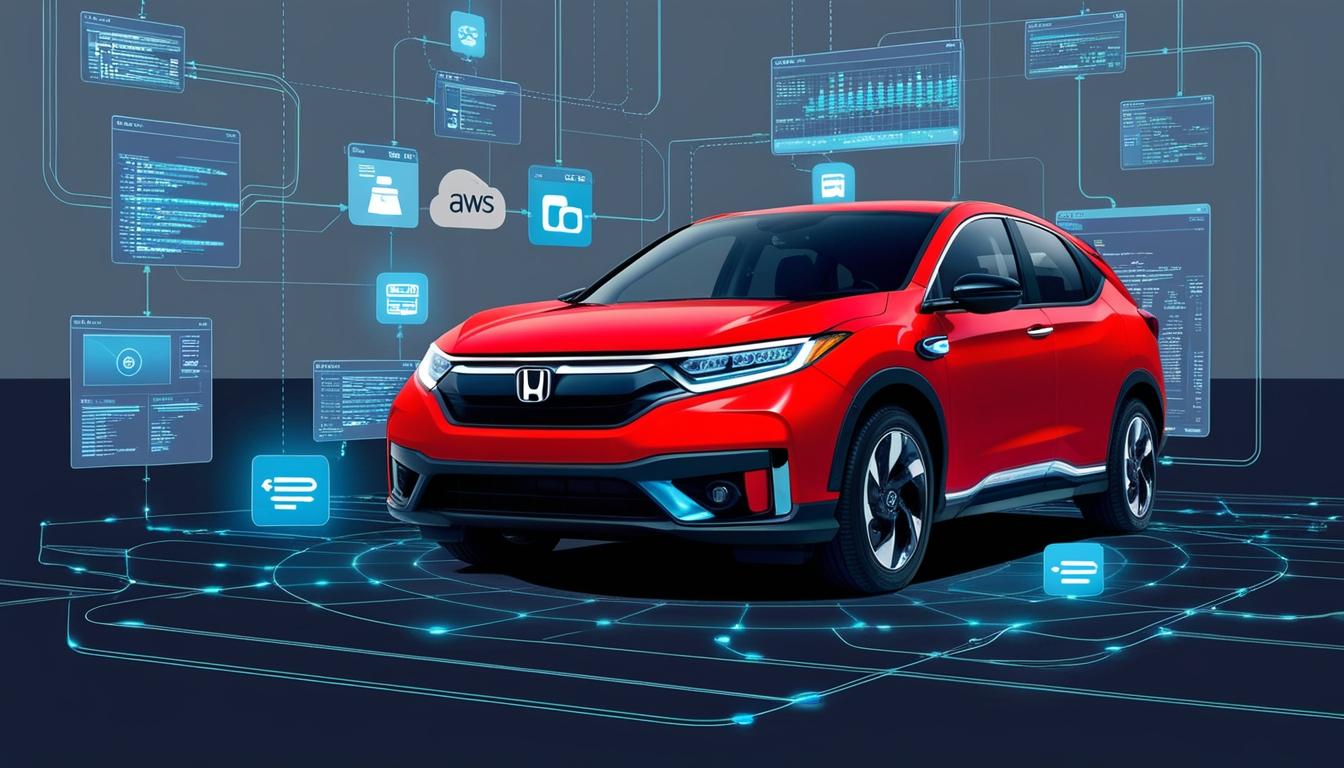Amazon Web Services, Inc. (AWS) has announced a strategic collaboration with Honda Motor Company aimed at transitioning Honda's vehicles from traditional hardware-based models to software-defined vehicles (SDVs). This partnership, revealed in Seattle, is set to leverage AWS's capabilities, particularly through Honda's Digital Proving Ground (DPG) platform, which is constructed on the AWS cloud infrastructure. The initiative aims to expedite the development of new electric vehicle (EV) functionalities and mobility solutions by integrating generative artificial intelligence (AI) and Internet of Things (IoT) technology with Honda's data assets hosted on AWS.
Speaking to Business Wire, Ozgur Tohumcu, director of Automotive and Manufacturing at AWS, noted that, "The automotive industry is undergoing a seismic shift to digitization." He emphasized the transition of vehicles into "intelligent, connected platforms on wheels" and the role of generative AI in accelerating the introduction of new features while optimising costs and timeframes. The collaboration is expected to enable Honda to perform over-the-air (OTA) software updates, enhancing vehicle safety, efficiency, and overall driving experiences.
The DPG platform serves as a virtual testing ground for Honda, allowing engineers to analyse vehicle data, assess EV driving ranges, and issue software updates without needing physical prototypes. Furthermore, the platform employs AWS IoT services to ensure a continual upgrade of vehicle features, thereby enhancing qualities of safety and autonomy. Honda also plans to implement Amazon Kinesis Video Streams for real-time video processing and analytics, which could assist in collision avoidance by detecting unusual movements around parked vehicles.
In a move to optimise EV drivers' charging experiences, Honda is set to utilise AWS generative AI services. This includes the development of an AWS IoT Core solution that will guide drivers to optimal charging locations based on various metrics, such as battery life and proximity to shopping centres. The automaker intends to incorporate this feature into its upcoming 0 Series line of EVs, thereby personalising the charging process for users.
In parallel, at the CES 2025 event in Las Vegas, NVIDIA, a leader in graphics and AI technology, presented its vision for the future of the automotive industry. During his keynote address, Jensen Huang, NVIDIA’s CEO, highlighted the company's focus on integrating AI into vehicles and driving the evolution towards SDVs. NVIDIA's DRIVE platform supports autonomous and assisted driving systems through its comprehensive suite of AI-based hardware and software tools. The introduction of the DRIVE Thor processor aims to unify AI workloads within vehicles, thus simplifying system architecture and enhancing performance.
NVIDIA is also fostering collaborations with significant automotive manufacturers such as Mercedes-Benz, BYD, and Hyundai Motor Group. Mercedes-Benz plans to integrate NVIDIA's DRIVE technology across its entire vehicle lineup, highlighting the industry's shift towards continuous vehicle updates through software, paralleling approaches seen in the technology sector.
Further advancing the SDV landscape, NXP Semiconductors has announced its intention to acquire TTTech Auto of Vienna for $625 million, pending regulatory approvals. TTTech, known for its expertise in safety-critical systems for SDVs, will enhance NXP’s capabilities in both hardware and software integration. The acquisition is poised to broaden NXP's automotive reach, especially with its recently launched CoreRide platform, which addresses the market's shift toward SDVs by simplifying integration and reducing costs.
With projections indicating that the SDV market will achieve a penetration rate of 45% of global auto production by 2027, automakers and technology firms are increasingly focusing on collaborations and innovations that enhance vehicle performance and adaptability. As firms like Honda, NVIDIA, and NXP position themselves at the forefront of AI and cloud-based vehicle technologies, the automotive industry's transformation is set to redefine how vehicles are developed, operated, and experienced.
Source: Noah Wire Services
